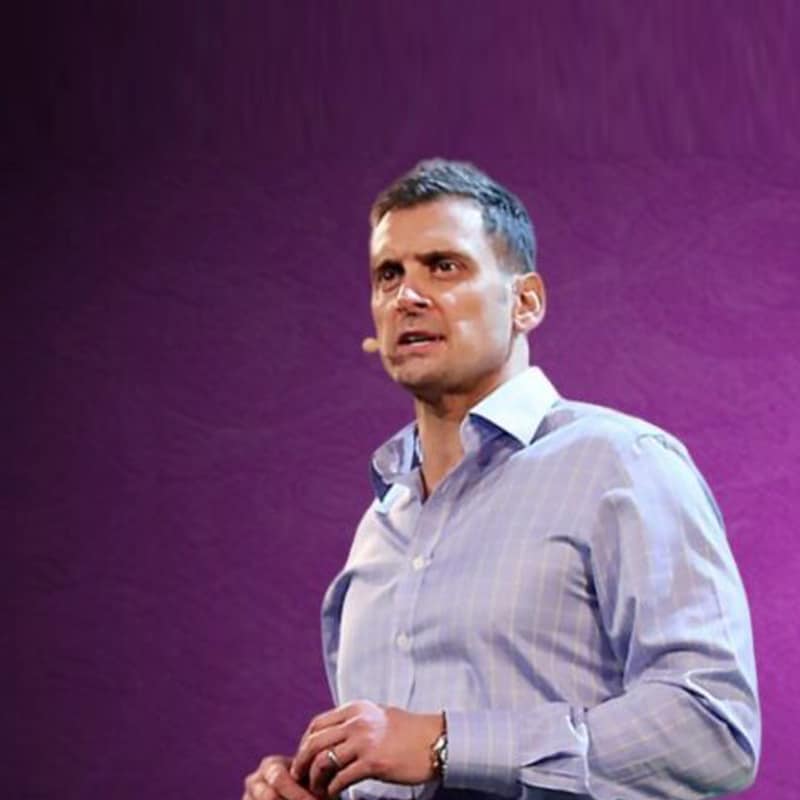
#20
The psychology of performance with Jamil Quareshi
Jamil Qureshi
Jamil Qureshi (@Jamil_Qureshi) is one of the foremost practitioners of performance psychology and an expert in high performance. As the co-founder of several change agencies – We Do Things Differently, Loudhouse and JQED – Jamil has worked with a rich diversity of the most talented business and sportspeople and teams in the world.
In 2006, he was appointed as the first-ever official psychologist to work with the European Ryder Cup team. They made history in winning by a record-equalling margin. In addition, Jamil has worked with 22 golfers inside the top 50 in the world, including two world number 1’s. His clients have included Darren Clarke, Lee Westwood, Henrik Stenson, Paul McGinley, Graeme McDowell, Paul Casey, Thomas Bjorn and Sergio Garcia.
Ranked among the most influential figures in British sport in 2009, Jamil was voted in the top 100 most powerful men in golf 2008 by his international peers. And it doesn’t stop there.
Jamil has worked successfully with three English Premiership football clubs, one of which reaching a record position from its halfway point in the season. He has worked with footballers from Manchester United FC, Manchester City FC, Liverpool FC and Chelsea FC, Fomula 1 drivers David Coulthard and Eddie Irvine and the 2009 England Ashes-winning cricketers.
Subscribe
Find the show on your favourite player
Summary
2:57 First career steps
- His start in the corporate world despite a passion for psychology
- The seemingly random jobs and choices he made trying to find himself and his passion: “I said yes to everything”
- Being discovered at a mind-reading show
5:20 Jamil’s approach to performance psychology
- Why having no interest in golf made him a better psychologist to golfers
- The similarities between working with athletes and CEOs
- His focus on simple, practical tips
8:32 Important psychological principles
- There is no “one size fits all” solution for everyone
- The 2 most important theories:
- “Being motivated by what we’re seeing to achieve rather than what we’re seeking to avoid”
- Identifying your purpose
9:56 Finding your purpose
- “Asking why five times” to discover your core beliefs
- Looking to children to relearn how to ask questions and dig deeper
11:36 Attitude
- The foremost importance of attitude
- Limitations of technical expertise
- Why applying growth mindset principles is difficult
- Our tendency to look for quick fixes
14:16 Thinking differently
- The “Fosbury Flop” as an example of thinking differently in the field of high jumping
- Using gamification to think differently
- Reading suggestions: why business books might not help you grow your business
17:34 Ownership
How to get employees to take ownership:
- permission
- accountability
- removing the fear of failure
19:01 Inner negative voices
- How we need to translate instead of listen to these voices verbatim
- Paul McGinley and how he dealt with critical voices before an important putt
- The power of our intuition and how to trust ourselves
22:04 Motivation and resilience
- The ups and downs in performance: what gets in the way
- Why playing is learning: lessons from early childhood
24:48 The role of a sports psychologist
- Our changing attitudes towards sports psychology
- The importance of regular psychological consultations even when things are going well
26:18 Mental toughness
- How consistency of mind leads to consistency of play
- Federer’s example: how his thinking was consistent, regardless of whether he was winning or losing
- Coping strategies such as pre-match routines and checklists
29:56 Prediction in sports
- How intuition is based on experience
- What our subconscious knows that our conscious mind doesn’t
- Examples of “flow” in sport: Wayne Rooney in his prime and Tiger Woods’ win
31:54 Playing vs analyzing
- “Talent is not enough”
- The importance of stepping back and observing
33:31 Reaching goals
- “Just do something”: taking small steps towards your goal
- Focusing on your strengths
35:21 Fear
- The importance of fear and failure in our development
- Seeing confidence as a muscle to be exercised
- Why we should practice facing our fears
- How we don’t give credit to our own strengths
- Primal fears vs learned fears
- The danger of putting labels on ourselves
40:24 From sport to business
- How we’re often held back from moving forward by what we fear to lose
- The importance of taking responsibility
- Being aware of our own belief systems and how they make us see things inaccurately
42:56 Children in sport
- What children gain from sports: learning to lose and learning to collaborate as a team
- Pushy parents
- Darren Clark’s memories of the time he enjoyed golf the most
47:01 Leadership development
- The importance of connecting with each other
- The most important thing for a business to do is to create a community of people
- Self-awareness within leadership
- How to become resilient in the face of a changing digital world
49:58 Creativity
- Why we should celebrate “divergent thinkers” and challenge the status-quo
- Creating an environment that enables making unexpected connections
- How creativity in sport comes from accepting failure
- The “rogue monkey” image
- Watching for ingrained limiting patterns that we accept as truths
54:16 Magic and stand-up
- The link between storytelling and magic: “Some of the best psychologists in the world I believe are magicians”
- The power of storytelling and imagination
55:43 Luck
- How to bring luck into our lives
56:36 Rapid-fire questions
- Alternative career choice: Musician
- Current curiosity: Our post-Brexit future
- Most influential books: “Born to Succeed” by Colin Turner and “Set The Boy Free” by Johnny Marr
- Best advice: Life is about timing – things happen when they’re meant to